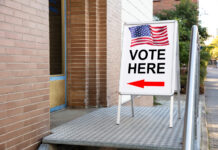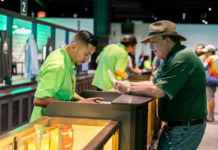WASHINGTON — Public support for legalizing marijuana remains near its all-time high and momentum in favor of reforming America’s failed cannabis criminalization policies continues to grow despite mixed results on election night.
“Every movement suffers temporary difficulties and disappointments. But our consistent upward trajectory is undeniable,” said NORML’s Deputy Director Paul Armentano, “Public support for legalization has risen 20 percentage points in the past decade and now sits at 68 percent nationwide. Nearly 180 million Americans reside in a jurisdiction where the possession, use, and sale of marijuana by adults is legally regulated. Medical cannabis is legally accessible in the majority of states in this country. No state has ever repealed its marijuana legalization laws and there’s no ‘buyers’ remorse’ among voters.”
Armentano emphasized that on election night, Nebraska voters overwhelmingly approved a pair of ballot measures to provide qualifying patients with access to medical cannabis, while voters in Dallas (population 1.3 million people) and two other Texas cities decided in favor of municipal measures prohibiting local law enforcement from making low-level marijuana-related arrests.
In Kentucky, voters in 106 municipalities and counties were asked to approve or reject local measures to allow medical cannabis businesses to operate in those jurisdictions. All of those measures were approved.
In Florida, a statewide measure that sought to legalize marijuana possession and sales for adults received more than 1.2 million more ‘yes’ votes than ‘no’ votes. However, because of unique rules in Florida, the amendment required support from a near super-majority of voters (60%) and it did not meet that threshold. The amendment was publicly opposed by Republican Gov. Ron DeSantis, who spent millions of dollars on taxpayer-funded messaging and made several unfounded claims against the initiative.
Adult-use legalization initiatives in the Dakotas failed to gain majority support from voters this year. Similar measures in those states had previously failed in 2022. South Dakota voters approved an adult-use initiative in 2020 by a significant margin, but that result was later invalidated by the state Supreme Court. Both states currently regulate medical cannabis access.
Armentano reiterated, “Delays and shortfalls are inherent to political movements. But movements are defined by how advocates respond to them. There’s little doubt that legalizing marijuana remains among the few issues most Americans agree upon. In fact, in this election, we saw for the first time both major party Presidential candidates voicing support for amending federal marijuana laws. It is now up to advocates to ensure that the incoming administration follows through on this promise, and it is pivotal that we continue to lobby state lawmakers to adopt marijuana policies that align with the will of the majority of voters who want end to cannabis criminalization.”
About NORML
NORML advocates for changes in public policy so that the responsible possession and use of marijuana by adults is no longer subject to criminal penalties. NORML further advocates for a regulated commercial cannabis market so that activities involving the for-profit production and retail sale of cannabis and cannabis products are safe, transparent, consumer-friendly, and are subject to state and/or local licensure. Finally, NORML advocates for additional changes in legal and regulatory policies so that those who use marijuana responsibly no longer face either social stigma or workplace discrimination, and so that those with past criminal records for marijuana-related violations have the opportunity to have their records automatically expunged.









